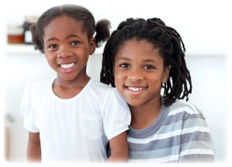 | |||||||
| Q: For the past three years, our 16-year-old daughter, Jackie, has had to deal with the complete chaos of her younger adopted sister who was severely traumatized before we adopted her. Jackie was an only child before my husband and I adopted and my world revolved around Jackie. We lived a relatively peaceful, fun, and happy life. All of that drastically changed once her sister entered our family. I realize now that Jackie has been traumatized by the disruption, fear, and struggles our family has endured. What can I do to help my daughter, without dismissing the trauma she has gone through? | |||||||
A: You're exactly right when your say Jackie's trauma of living with a severely traumatized younger sister cannot be dismissed. In fact, her experience needs to be maximized and brought to the surface in order for her to find healing. Jackie needs the emotional space to be heard and to be understood. However, listening to your daughter's challenges can easily evoke feelings of guilt, shame, and perhaps, resentment in you. When this happens, all too often, parents inadvertently stop listening and work to minimize or stop their child's pain, closing off this child's needed opportunity to have a voice. The first place to start is to realize that you cannot fix Jackie's experiences from the past three years. What is, is. Yet, what you can do is work to understand her experiences (getting into her shoes) and giving her the time, patience, and emotional space to discharge ALL of her feelings. It takes being willing to commiserate with her and allowing her to express her story, not just at the cognitive level, but at the emotional level. Absorbing her pain means not responding in a defensive or a minimizing manner and not giving her solutions for the moment (that can come later). A conversation might sound something like this: Mom: "Sweetheart, there is something that I haven't recognized about your life. I haven't seen how difficult it has been for you since your sister came home. For the last three years, especially when she came home, I probably ignored you sometimes, I didn't pay the same amount of attention to you, and I wasn't there for you." This conversation might need to continue for a while, each time with mom "dancing" with whatever her daughter says in return, allowing her daughter to lead the conversation. Yet, the most important part of such a dialogue is that it happens with emotional intensity, at the heart level. Allowing Jackie the safety of a parent who is present and working to just listen, will allow her to discharge her anger, pain, and frustration now and not in the heat of a difficult moment when her sister is melting down. But perhaps you are saying that you've tried this and these types of conversations happen over and over without movement forward. If this is the case, then you have to dig deeper. Are you stopping your daughter at any level? Are you really able to handle her anger and pain? What feelings inside of you are coming up when she is expressing? Guilt? Fear of the future? Helplessness? Feeling the depth of your child's pain in these moments, coupled with your own dark feelings that have not been honored or expressed, will shut you down. Your daughter will feel this. Thus, her expression is not being heard and she stays stuck in her healing process. When this is the case, conversations like the one above will keep looping and looping, keeping everyone in a state of victimhood. You have to allow your pain to be felt, honored, and understood. In order for you to feel your child's pain, you have to feel your own pain first. This can be scary. It may seem that if you feel the depth of pain within you, opening up the floodgates, you won't be able to parent effectively and you won't be able to pull it together. Ironically, this is exactly what keeps parents from being able to parent the way their children need them to. Parents have to go deep within the caverns of their own hearts. They have to own and acknowledge their own pain. Parents have to stay in their hearts; that is where their children are living. Effective parenting ultimately comes from self-love, self-discovery, and self-understanding. Love yourself through your pain in order to get to the depth of your child's pain. Healing resides within this powerful dynamic. And remember, it isn't always about "fixing" the situation with your child. The "fixing" comes from listening, giving your child a voice, and simply being present. Press on, |
|||||||
| Heather T. Forbes, LCSW Parent and Author of Beyond Consequences, Logic & Control: Volume 1 & Volume 2, Dare to Love, and Help for Billy. | |||||||


1 comment:
I adopted two boys. One of them has RAD and a few other conditions, while the other is a meth baby. I got the RAD boy at 27 months and my other son at 4 months. I feel so badly for my youngest son who has had to endure the (is hatred too strong?) wrath of his older non-bio brother. It almost seems like my eldest son would have been better off in an only-child situation. I don't know how to protect my youngest (11) without setting off my older son (13)? The oldest is always saying that I like the youngest more. The eldest and I have a terrible relationship. He gives me no respect nor can he demonstrate any signs of attachment. This situation drives me nuts. The only thing I have to look forward to is a 50/50 custody agreement with their father so I can get a break. I hate living this way.
Post a Comment